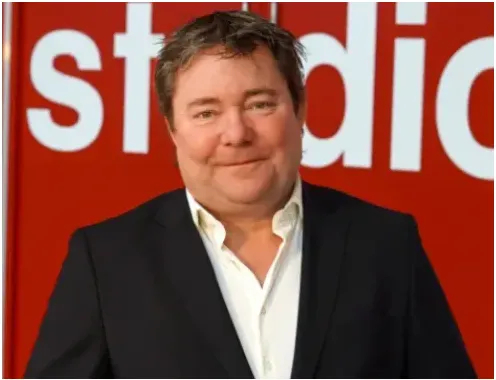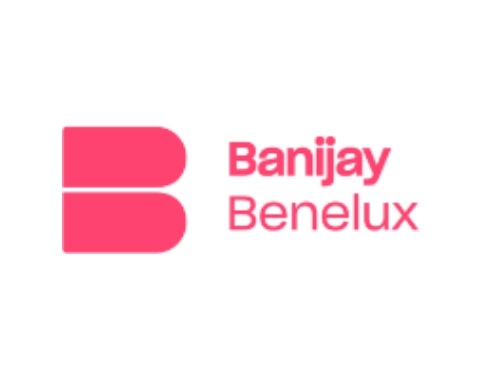Colin Delahay - Chief Financial Officer at Banijay Benelux


Colin Delahay is the Chief Financial Officer at Banijay Benelux in Amsterdam, where he’s been for over three years. He spent the first 20 years of his career with PwC, before joining VEON, LafargeHolcim, and Endemol Shine Group.
What excites you about working for Banijay Benelux?
Banijay Benelux is part of Banijay Group, an independent global media house, mainly focused on the development, production, and distribution of TV-related content. In Benelux, we have 12 production companies and develop content for all linear channels and streamer platforms. We make interesting and exciting content with a highly motivated and diverse team.
On the strategic and operational side, we have a great deal of freedom to implement change, experiment with new ideas, and broaden our scope.
Also, the media industry is changing fast; there's a declining trend in linear viewing rates, viewing behaviour is changing, and also the content needs and the talent market is changing. On top of that, we have the impact of artificial intelligence and fast-changing technologies. This makes my role within Banijay Benelux and the broader media industry exciting, diverse, and interesting.
Given the fast-moving environment both from a customer and a technology side, it is an industry that never has a dull moment.
What changes have you seen to the employment market in the Netherlands over the years? What, in your opinion, have been the drivers for these changes?
Generically, in the Dutch market, you see a big change compared to the early stages of my career. The drivers of the talents/employees have clearly shifted. Elements such as the purpose of the company, sustainability, work-life balance, and flexibility are now far more relevant decision criteria than they used to be – a generational shift we do not only see in viewing behaviour, but also in employer choice.
We spend a lot of effort in creating a good working environment to facilitate the needs of our employees and try to keep up with the current drivers. For example, we do a broad annual survey amongst all our employees, both permanent and temporary, via Great Place to Work (GPTW) to see where we do well and what we can improve. I’m proud that we – as the first media company - have the official certification as an excellent workplace.
Next to this is the media industry, an industry where a lot of freelancers work; we are very project-based, specifically on tv-productions. So, at Banijay, it is important to create ambassadors for our organisation to keep our access to the best talent.
All production companies are targeting production-related talent. Creating a pool of highly qualified, good people was of the greatest importance. So, focusing on retraining and training people became more relevant than before.
Also since COVID, there has been a shift towards working from home, and COVID proved it works. Some had to do a mindset shift and manage on output rather than availability. You skip the commute, and it gives you freedom. In my view, output is increasing.
Also now, when the market is back to - let’s say - normal, the relevance of retaining the best talent remains, as we are a project organisation with, to a certain extent, a seasonal pattern and a changing demand pattern during the year. One of the advantages of Banijay Benelux is our diverse array of production companies, each specializing in various genres. This allows talent the flexibility to transition between different companies within our organization without leaving the company.
What is a memorable moment from your career and why?
There have been several memorable moments during my career. However, the common denominator is change, and working with people from different cultures and in different cultures. I started at PwC as a Consultant and worked there for 20 years. Throughout my time at PwC, other than becoming a partner, I had international experiences and worked abroad in different cultures, which is a memorable element.
Then I switched to corporate work. During my time with VEON and LafargeHolcim, we initiated and implemented large transformational projects, with a focus on efficiency (work smarter, not harder), effectiveness (increasing the relevance of Finance), and attractiveness of the Finance function (proud to be part of Finance).
Revamping those Finance organisations on a global and local scale, getting people on board, changing mindsets, and seeing the transformational impact in the positive sense of the word are moments that made me proud.
Specifically, on the transformational journeys, I had quite a steep learning curve. I learned the impact of good communication and stakeholder management, which gave me great insights and learnings on a personal level. Good communication and stakeholder management are the key drivers of creating change and embracing change.
If you could change one thing in your career, what would it be?
I take life and career as it comes; regret is a meaningless emotion from that perspective. It’s the learning you take from events or situations that, with hindsight, you would have done differently.
Of course, there are several situations that, with hindsight, I would have done differently today, so if I need to name one thing, it would be to act faster on what my feelings tell me. Don’t stall difficult situations too long; if the chemistry is not there, make a decision, and act on it.
Overall, I’m happy with the career path I have taken.
What is the most surprising thing that has happened during your career?
It is not so much one event, but more about what I have noticed during my career: How people work together in corporate environments.
I’ve been an auditor for the first 20 years of my career, which was very project-driven, after which I went to large, corporate organisations. The role and impact you have in the corporate environment are very different; you are directly confronted with the impact and the consequences of decisions you make – you are more in the driver’s seat. That took a while to get used to.
What surprised me in some of the organisations I have worked in is the siloed way of working, where different functions work next to each other instead of with each other. Also, within a function, you sometimes see this siloed working.
In every company I worked for, I tried to implement structures in which all relevant functions take combined ownership of important decisions. For example, a refinancing or a legal restructuring does not only require an Accounting and Reporting impact analysis, but also an analysis from a Tax, Treasury, Legal and Operational perspective.
Getting these functions together, discussing the risks and consequences, challenging each other, and deciding on the best way forward together brings you not only to the likely best possible solution, but also towards a solution that is supported by a broader scope.
Furthermore, I’m a strong believer in giving people end-to-end process ownership and giving them insight into the relevance of their role within the bigger picture, so people feel included and talk to each other. That is still the Consultant in me.
Who are the main stakeholders that you deal with internally?
Within Banijay Benelux, we have a small managing board in which we make most decisions together or at least in mutual consultation. I am involved in most areas of the business.
From a direct stakeholder perspective, key stakeholders are obviously our employees, the management teams of our production companies, operations (we have several production studios), my colleagues on the management board, and our shareholders at Banijay Group.
What are the key challenges your business faces regarding sustainability?
Within the media industry, sustainability and Environmental, Social and Governance had - compared to production industries - a rather late start. Social and governance have been top priorities over the last years, specifically after certain MeToo affairs in the Dutch media industry, which was one of the turning points when it comes to subjects such as safety and integrity.
On the environmental sustainability side, the industry is still in a rather early stage. We have a growing, clear focus on sustainability, which is broader than measuring the carbon footprint of our productions, not because we have to (being part of a global group), as a reporting obligation, but because we intrinsically feel that we have to make it an integral part of our DNA.
That is because I see it as a strategic necessity towards our partners, clients and, above all, our people. Our people look for purpose; you see slowly but surely a change from profit-driven to a more purpose-driven mindset. You also see that in the content we make and the requirements of our employees and other stakeholders.
On ESG the challenge for us, like most companies, is to find a balance between fulfilling the limited European and local regulations currently available, which are subject to change and not yet set in stone, incorporating these and our requirements throughout the whole chain from suppliers to customers, as well as keep this a priority within our broad employee base – ensuring it is incorporated into everything they do.
That is a journey that will take time, but it is a must for us and future generations to survive in this world. Also, from an economic perspective, I think it can be a strategic benefit to be on the front end of this era.
What are the three challenges ahead for you as a CFO?
As mentioned, the media industry is changing fast, specifically in the last few years, and will continue changing in the years to come. Viewing behaviour is changing and new business models are required to sustain our profitability. Further, we see an accelerated impact from new technologies and AI, which brings us both threats and opportunities.
We then have the paradigm shifts within our society that are happening, which lead to the necessity to keep and build value in different ways. One example is integrating sustainability in all we do, as well as the shift from a profit-driven business environment to a more purpose-driven environment. All with the right balance in mind. This all interacts with the challenges ahead.
One is retention, keeping hold of and attracting talent in our team. The changing environment requires also a change mindset from our teams so retaining, training, and maintaining the team is key.
Another challenge is daring to develop and implement new business models - stepping out of the old-fashioned way and walking new paths. Some of them will fail and some will be successful, so we have to dare to do that. Also, incorporating AI into our processes and way of working, and looking for new and different cooperation models. Changing markets incorporate risks, but also opportunities.
The other big challenge from a CFO perspective is the shift we make from the financial to the non-financial space - not only in reporting, but in everything we do. That is still rather new for us - value-based reporting and sustainability reporting; it is not only numbers. Value creation is broader.
These are all good challenges to have though, and as with any change, we’ll learn, we’ll adapt, and we’ll become stronger for doing so.
Thank you to Colin for speaking to Emma Marshall, Senior Consultant, in our Finance & Accountancy recruitment team in the Netherlands.
Views and opinions contained within our Executive Interviews are those of the interviewee and not views shared by EMEA Recruitment.






You can also use your social account to sign in. First you need to:
Accept Terms & Conditions And Privacy Policy